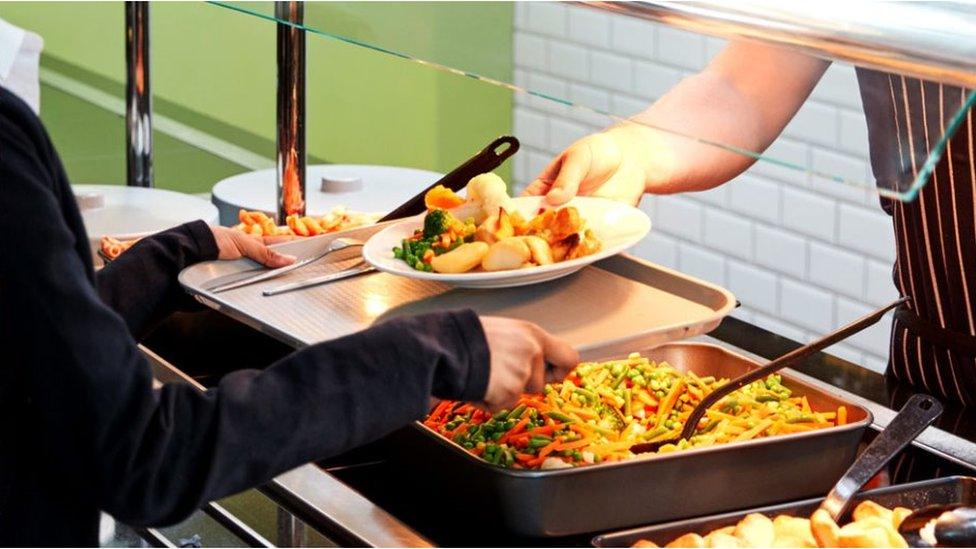Council elections 2022: 'Bread and butter' Welsh Conservative campaign
- Published
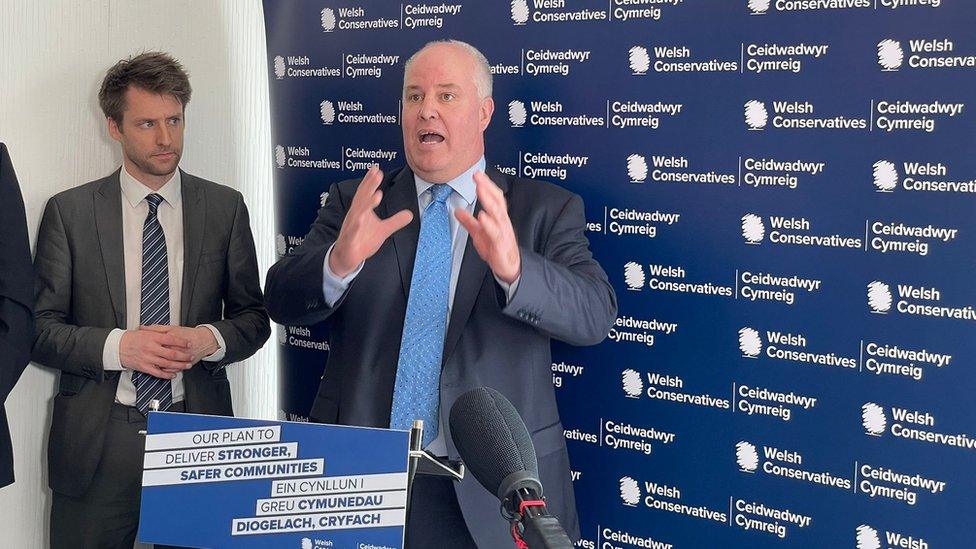
Andrew RT Davies said Wales could not afford "another lost five years in local government"
The Welsh Conservatives have promised to tackle "bread and butter issues" as they launched their local election campaign on Thursday.
At an event in Llandudno, party Senedd leader Andrew RT Davies announced the Tories are fielding their highest number of candidates - 669 - on 5 May.
They were the biggest gainers in the previous Welsh local elections, in 2017, and have more to defend now.
Five years ago the Conservatives took majority control of Monmouthshire.
They have cabinet members in ruling coalitions in Powys, Wrexham and Conwy as well as Denbighshire, where they became the largest group in 2017.
They also became the biggest group of councillors in Vale of Glamorgan, leading the authority for two years.
But Labour returned to power there in 2019, as head of a coalition, after internal rows resulted in eight councillors, including six cabinet members, quitting the Tory group.
In the 2017 local elections, the Conservatives increased their number of councillors across 12 of Wales' 22 authorities, including notably better performances in Cardiff and Bridgend and raising their total number of Welsh council seats by 80 to 184.

At Thursday's local election campaign launch, Mr Davies said Conservatives running councils offer a "quality service, addressing those bread and butter issues of fixing the streetlights, fixing the pavements, putting the potholes right".
"What some people might laugh at as trivial things are big issues for many people when they step outside their front door," he said.
"We will deliver for people, as we always have, in local government."
Mr Davies said Wales simply could not afford "another lost five years in local government".
"I drove up from south Wales today, I see communities brimming with opportunity, brimming with optimism, wanting that unleashing of that potential that has been held back by Plaid, Labour and liberals in Cardiff Bay," he said.
"Let's make the difference," Mr Davies told Tory activists.
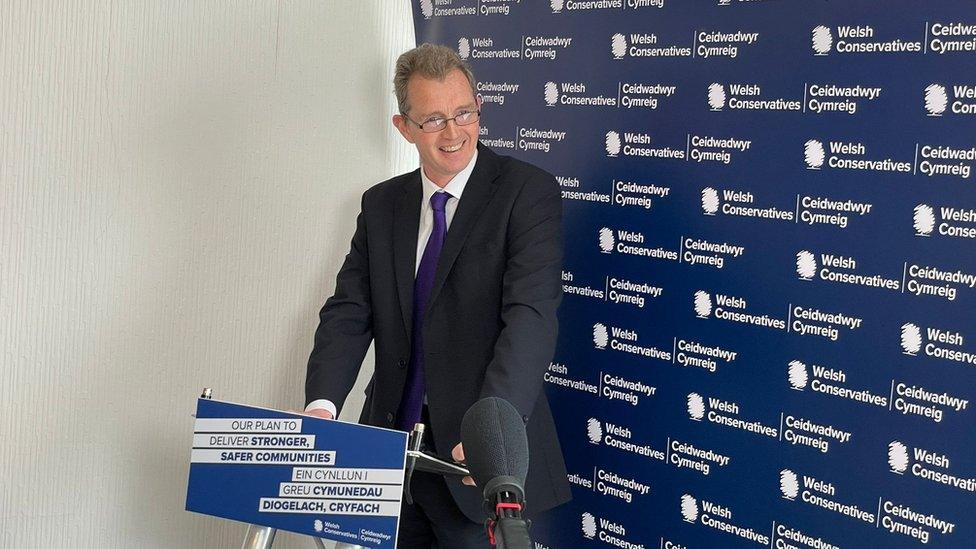
David TC Davies said the Conservatives were "ready to take control of local authorities in Wales"
Whatever the issues are in their patch, you can rarely divorce local parties' electoral fortunes from the bigger political story across the UK.
How voters might see Boris Johnson's prime ministership in relation to the cost of living crisis, the war in Ukraine and the continuing developments over Westminster parties held during Covid restrictions could be crucial.
The leader of Conservative Monmouthshire council even called for Mr Johnson to resign, external, a few months ago.
But Andrew RT Davies said the Conservatives were "vibrant" with "solutions to the challenges that people face on a day-to-day basis".
Praising Boris Johnson's premiership, he said the prime minister was "answering the big questions".
This included responding to the Covid pandemic with a vaccination programme, "standing shoulder-to-shoulder with our Ukrainian friends in the face of the abhorrent aggression" and raising the national threshold while cutting fuel duty to help with the cost of living, he insisted.
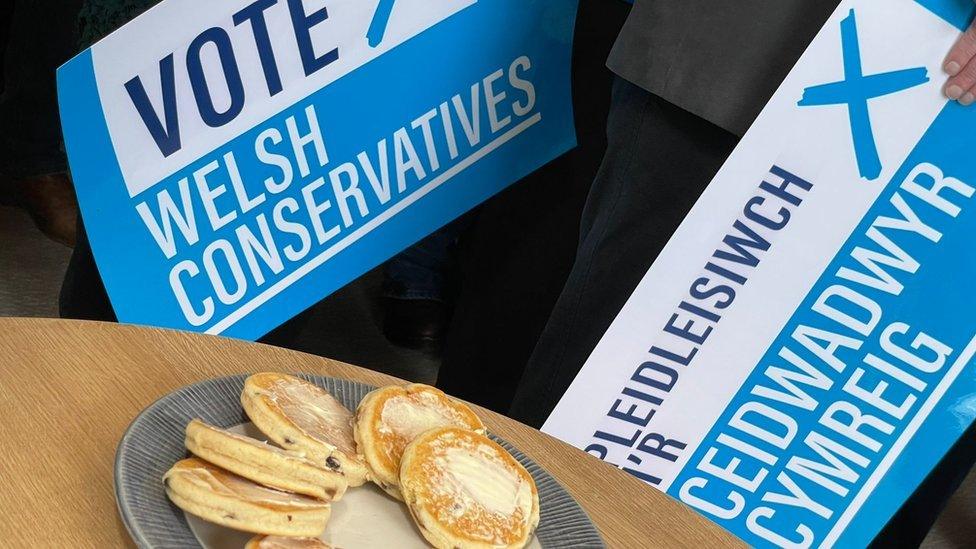
Activists were treated to a traditional Welsh bite as they waited for the speeches
Opening the event, Conservative Wales Office Minister David TC Davies said that in these local elections his party was standing for "values that have always been the cornerstone" of its policies "in every level of government".
"We're going to be standing for freedom, prosperity and security, and we've got four weeks to go," to election day, he said.
The minister urged the party faithful to"get out there onto the doorsteps" and show the people of Wales that the party's 2019 general election success, in which it captured six seat from Labour was "not just a one off".
The Conservative Party, he said, was "winning the arguments, winning seats and ready to take control of local authorities in Wales".
Wales will be electing councillors in each of its 22 local authorities next month.
There are also elections taking place in parts of England, in Scotland and Northern Ireland.

Analysis, by BBC Wales political reporter Cemlyn Davies
Council elections are an opportunity for voters to decide who should run their local services, and as they look to build on the gains they made five years ago, the Welsh Conservatives are keen to remind people of that fact.
But they'll also be well aware that their fate next month is likely to be decided by how people feel about wider issues, including lockdown parties in Downing Street and the cost of living crisis.
Earlier this week the Welsh Secretary Simon Hart said people "had moved on" from party-gate.
We'll get a better idea of how true that is in four weeks' time.

POSTCODE SEARCH: Is there an election in my area?
WHAT'S HAPPENING IN WALES: A really simple guide
ELECTIONS ACROSS THE UK: Find out more

- Published5 May 2022
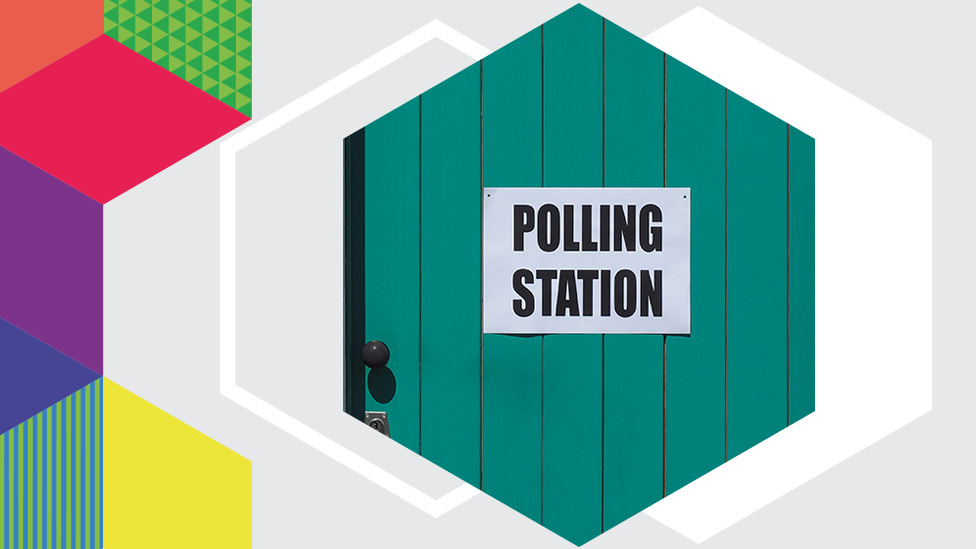
- Published25 March 2022
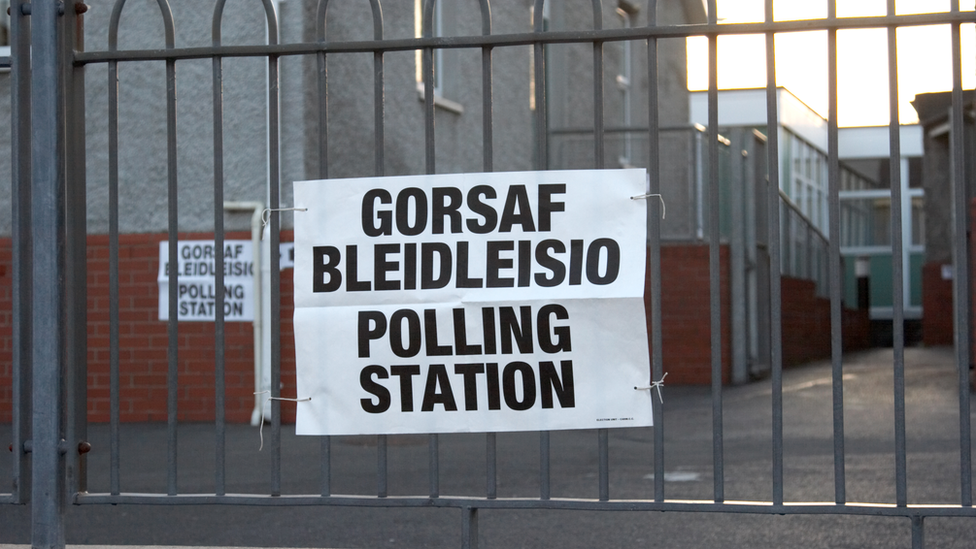
- Published21 March 2022
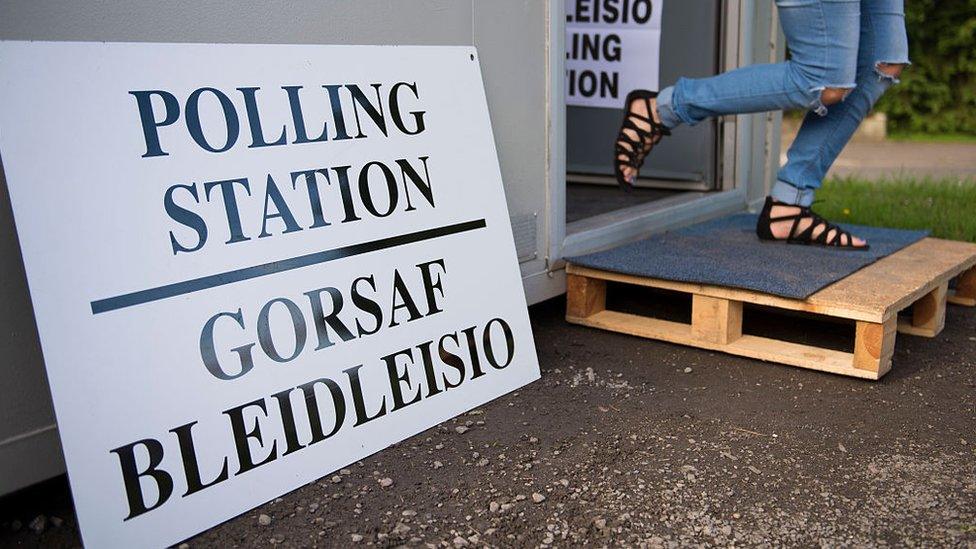
- Published5 April 2022
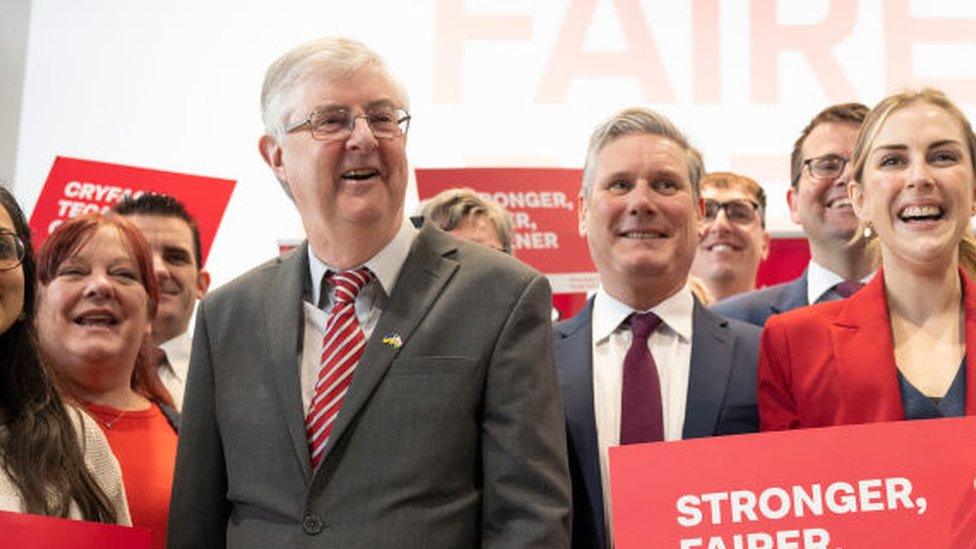
- Published25 March 2022
